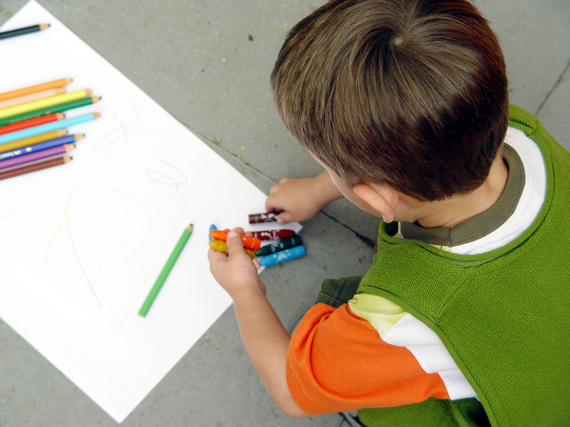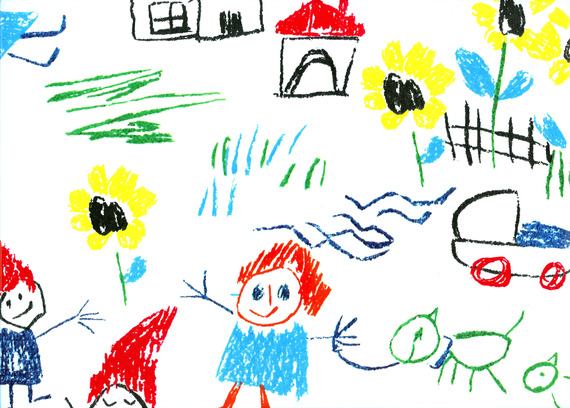There is no denying that education is changing at break-neck speed. There are so many reasons why these changes are occurring that it is almost impossible to list them all. It appears that most of the educational system is at least trying to keep up with the changes, but I think there are two critical groups that need to be addressed: Pre-K and Kindergarten programs. Below are 4 reasons you may find surprising as to why we need to take a serious look at some necessary changes for our Pre-K and Kindergarten programs.
1.Compulsory School Attendance
The mandatory compulsory age for school attendance can be anywhere from ages 5 to 8 and run as long as from ages 16 to 18 ( Fact Check). That means that there may be some states that may require less than 10 years of proper schooling! By the age of 5, most children start kindergarten and have already had at least 2 years of Pre K. Others however, come to kindergarten with little to no educational preparation. Should we require a Pre K program? Should we require mandatory school attendance by age 5 and make it a national law? As an elementary principal I have seen the difficulty kindergarten students have starting school when they have had no Pre K experience. Most students are soaring academically, while others (those without Pre K experience) are trying to learn how to hang up their coat or to sit and raise their hand if they need the teacher's attention. Would we actually consider having our students begin their educational career at the age of 8? Mandatory compulsory school age must change.
2.Rigor
The common core is not adopted in all states; however, there is a sweeping change in the nation when it comes to the level of difficulty in academics. The common core (or PA core where I work) has really increased the rigor in all classes and that is a good thing. It seems that when the core standards were implemented the grade level objectives were pushed down at least one year. That means that the 1st grade class several years ago did not look like the first grade class of today. The 1st grade class of today looks much like 2nd or 3rd grade work from years past. This, in effect, means that Kindergarten is the new 1st grade. The learning that is expected from our kindergarten classes of today is extraordinary. They are expected to be reading, writing and doing some pretty difficult math. Again, much of what we used to expect from our first graders is now being taught in kindergarten ( Fact Check). Kindergarten must increase its rigor to meet these new demands.
3.Pre K is the new Kindergarten
Given the new expectations for our kindergarten students, Pre K programs must develop the pre-learning experiences necessary for reading and math readiness. I often hear our parents saying, "What has happened to play time in kindergarten?" Well, sadly playtime in kindergarten is gone. But playtime is perfect for our Pre K programs ( Fact Check) Pre K should now accommodate all those very important social skills so necessary for student success in later years. That is not to say that our children will not have fun in kindergarten. We always want to be mindful of developmentally appropriate learning experiences for our children. Pre K experiences will be more focused on imaginative play, appropriate social skills and academic readiness. Pre K must change its curriculum to accommodate the new standards.
4.None of this is Mandatory
If I had to guess, I would say that Pre K and Kindergarten are the most unregulated portions of our students' educational experiences. Some children may have had a Pre K experience in a school environment, in the basement of a church, in someone's house, as a part of their day care experience, or not at all. Some children may have had a kindergarten experience as a continuation of their Pre K program, in a traditional school setting. Some children may have had a full day kindergarten experience and some may have had only a half day experience. Some students may have had no kindergarten experience at all, meaning that their first formal educational experience is in first grade (Fact Check). Pre K and Kindergarten programs must become regulated.
This lack of regulation in both Pre K and Kindergarten is a real deterrent to our children's academic success. The National Center of Educational Statistics states that approximately 64 percent of our children attend a pre-primary program (as of 2012). Conversely this means that almost 40 percent of our children are not enrolled in a Pre K program. It is well documented how important early learning is for our children. When children come to kindergarten or first grade socially unprepared and terribly behind academically, it is almost impossible for them to succeed. These unfortunate children find themselves playing "catch up" forever. We need to take a serious look at our Pre-K and Kindergarten programs before we have a generation of students so far behind they will never catch up. Let's mandate both Pre-K and Kindergarten and give our children the best of both programs.


